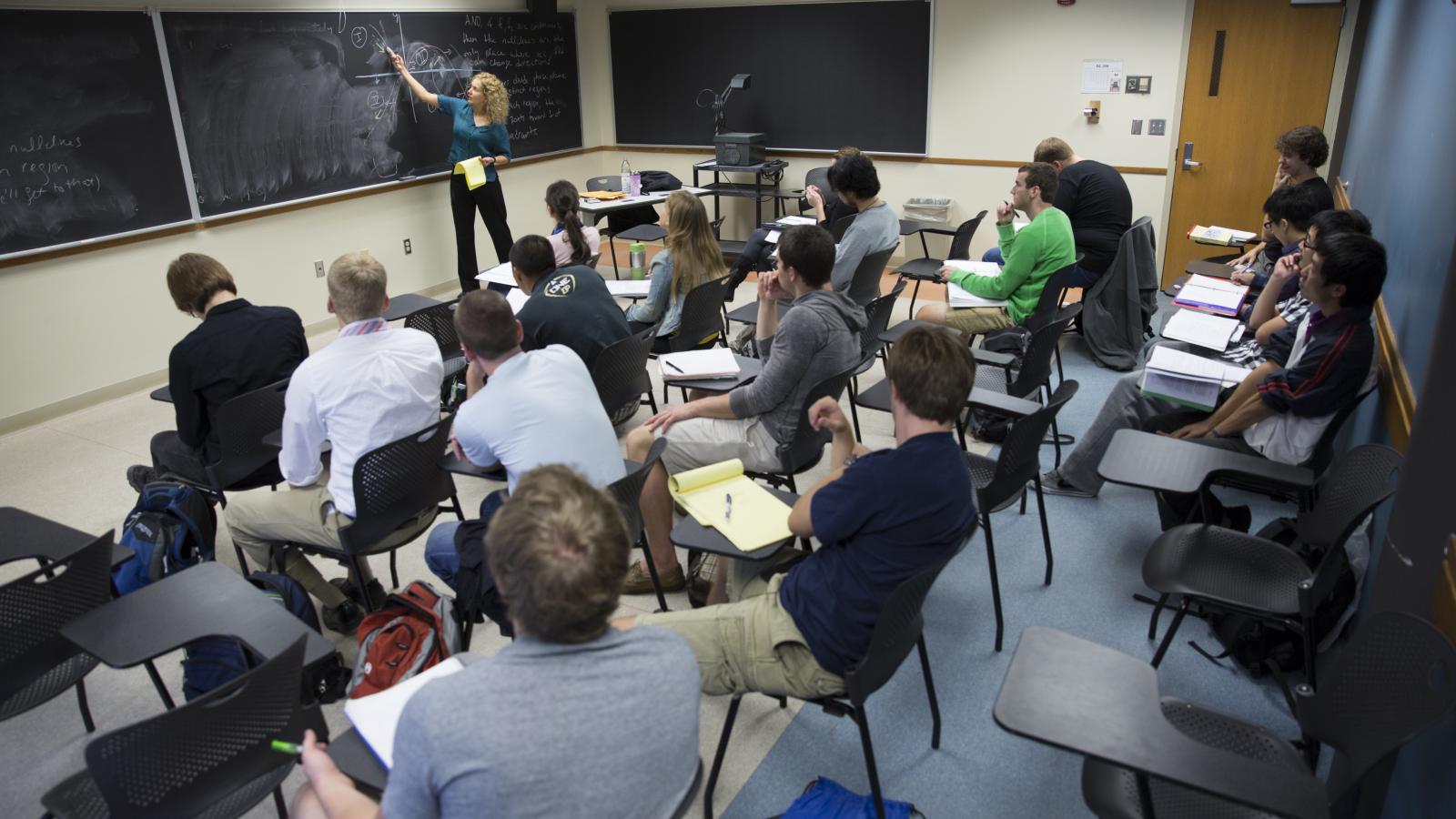We are establishing a sustainable, research-driven culture to improve student success and retention in STEM courses — science, technology, engineering, mathematics — to ensure that students who begin a STEM course, stay in a STEM-degree program.
With generous support from Ohio State's Office of Academic Affairs, we put multiple interventions in-place:
Pilot sections of Calculus 1 and Calculus 2 employ active learning, flipped lectures and open-source textbooks.
We continually view the outcomes of these initiatives through many lenses:
- affective surveys
- conceptual pre- and post-tests
- online event logs
These are aligned to such national studies as the Mathematics Association of America's (MAA) national study of college calculus.
The Result
In terms of the number of participating students, Ohio State now performs among the single largest IRB (Institutional Review Board)-approved study of different lecture formats for calculus students with common assessments.
Certainly, other studies have looked at the question of lecture format (e.g., West Virginia's study of active lecture and IBL in calculus courses, which looked at approximately 100 students since 2009) but Ohio State's size places it within an order of magnitude of the MAA's national study. There are some advantages to a study exploring a single, large institution: the same exams were administered to students experiencing different interventions, making it possible to meaningfully compare their exam performances. We have given presentations on these results at the national Joint Mathematics Meetings and at other institutions, e.g.: Michigan State University, Colorado State University, Stevens Institute of Technology, the University of Minnesota, and the College of Wooster.
Targeting Demographics
When we examine collected demographic information, the data suggests that calculus courses at Ohio State provide excellent instruction for a large segment of the student population, although there are subpopulations where improvements could be made.
Providing Data-driven Alternatives
To address this need, we have created a new, stretch, year-long calculus course, Calculus with Review, which students are placed into based on what we have learned.
Long-Term Culture Transformation
We continue to seek new data-driven alternatives for students who are not successful in more traditionally structured courses. This project is part of a long-term, transformation of culture where decisions are based on experiments and data.




